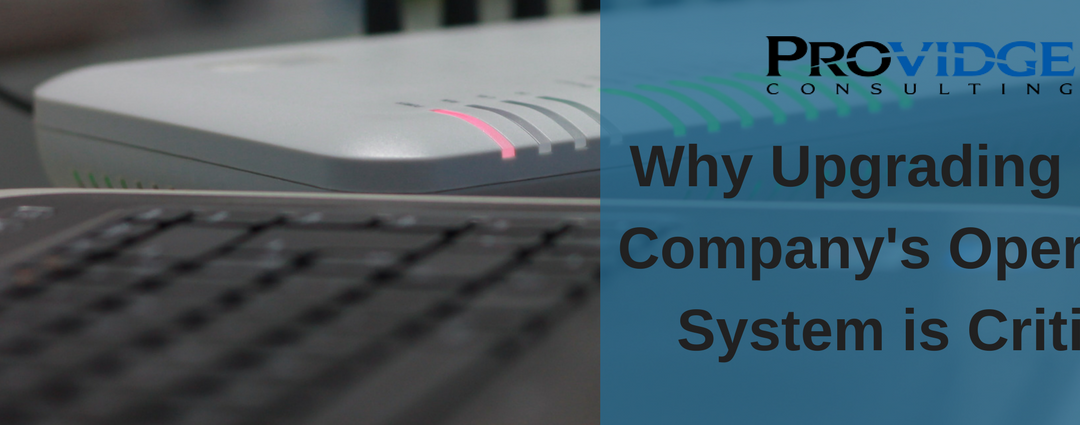Those little pop-ups are so annoying. You know the ones – the “hey! A new software upgrade is available. Upgrade your system now.” They harass us on our phone, on our laptop, on our tablets. You can’t find from those pesky little pop-ups.
But, all of us try to avoid it. We close the pop-up, with a careless “I’ll take care of that later” and then never do.
Last week’s news that a security flaw in Windows XP was exploited to hack into devices around the world and hold users’ data hostage is the reminder we all need that patching in a timely manner – not weeks or months later – is critical. Especially for your business. Organizations around the world, including banks, and car manufacturers, came to a standstill over the weekend as hackers held their data for ransom.
If you aren’t patching your organization’s systems regularly, you are putting your data and your company at risk.
But patching is just part of the equation. To truly ensure the greatest possible protection from hacking, companies need to have a consistent plan for upgrading their operating system.
Why? Isn’t patching good enough? Well, a few reasons. Let’s explore:
Older operating systems don’t have full support from the provider.
Although Microsoft made an exception and released a patch to fix the vulnerability in the WinXP operating system that was ultimately exploited by hackers last weekend, Microsoft ended full support for WinXP in April 2014.
So, all those organizations still running on Windows XP have been doing so without support from Microsoft for three years. Their systems went essentially unprotected for three years.
Without that support companies do not receive security upgrades, or technical support, two crucial elements to ensuring the stability of your operations. Microsoft states plainly on their website that, “PCs running Windows XP after April 8, 2014, should not be considered to be protected, and it is important that you migrate to a current supported operating system – such as Windows 10 – so you can receive regular security updates to protect their computer from malicious attacks.”
Microsoft, for its part, made a strong push to encourage businesses to move to Win7 or Win10 as support was ending for WinXP. Unfortunately, the message clearly didn’t resonate. As of mid-2015, 44% of companies in the UK and US were still using WinXP either exclusively or in conjunction with Windows Server 2003. The numbers are far higher in many other parts of the globe. Those companies, by not leaving WinXP when Microsoft ended support exposed themselves to a hack last weekend that cost time, labor, and money.
Limit your exposure to security vulnerabilities.
Malicious software is purposely designed to exploit known vulnerabilities within an operating system. By remaining on an outdated operating system you are increasing the risk that one of those known vulnerabilities will be targeted and result in potentially catastrophic damage to your business.
Upgrading your operating system within the recommended timeframe will give you the best possible defense against any potential hacks. Patching helps, but only up to a point.
Give your employees access to the best technology to perform their job.
New operating systems often bring with them changes and improvements that can help your employees work faster and more efficiently. One of our clients in recent years moved from WinXP to Win8. The OS upgrade brought with it a faster start-up, a modern interface, new web-connected apps, increased security, and a touch-screen option. These changes resolved employee frustration with an old, out-dated operating system, and increased efficiency across teams.
The key of course is a well-planned implementation. Communicating early and often regarding the impending change is crucial. Make sure to provide your employees ample opportunity to receive training on the new operating system to prevent hiccups or delays when their systems are upgraded.
As annoying as those little pop-ups can be, it’s critical that businesses strategically plan for upgrades to their operating systems. Leaving OS upgrades out of your long-term IT plans can put your employees, your operations, your entire business in peril. Take the time in advance to incorporate OS upgrades into your IT strategic plans and you’ll save a lot of pain, and money, down the line.
Is your company overdue for an operating system upgrade? Contact us today and let’s work together to protect your organization’s data.
